Class VI
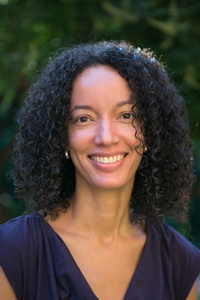
Anna Agbie-Davies
Associate Professor, Anthropology
According to Dr. Agbe-Davies, the archaeology of plantations and the African diaspora is less well-developed in North Carolina than elsewhere. She maintains that this archaeology must be responsive to the concerns and interests of present-day stakeholders. Her current project at Historic Stagville collkimoaboratively develops research agendas with preservation and heritage groups, emphasizing those focused on North Carolina, Durham and/or the African-American past. She proposes to learn about the skills and expertise of enslaved laborers which might involve exploring sites of former blacksmith shops or mills. Foodways is another of Agbe-Davies’ research interests that reexamines the Stagville kitchen site using existing archaeological data. Alongside traditional archaeological research, Agbe-Davies’ ongoing “documentary archaeology” project includes crowdsourcing account books transcription from the Cameron Family Papers at UNC’s Southern Historical Collection.
For current information on Anna Agbie-Davies, visit her faculty page.
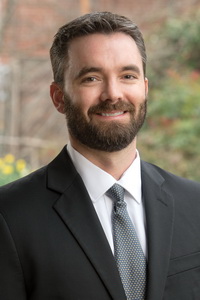
Antoine Bailliard
Associate Professor, Occupational Science and Occupational Therapy
As an occupational therapist who practices in inpatient psychiatry, Dr. Antoine Bailliard is acutely aware of the service gaps adults with mental illness experience when returning to the community. These gaps, he maintains, result in poor community integration, social isolation, recurrent hospitalizations, and poor health and well-being. To address these gaps, Bailliard consults with existing service providers in the community, such as Assertive Community Treatment (ACT) teams, to identify intervention targets that would improve the community integration and wellbeing of adults with mental illness. Feedback that Bailliard has received suggests that ACT team members would benefit from training in how to help clients develop social skills necessary for effective community engagement.
In a collaborative partnership with ACT teams and their clients, Bailliard will develop a social skills training protocol that will be delivered by ACT teams in the community through tdaily interactions with clients. Through the combined expertise of ACT teams, their consumers and his clinical training and experience, Bailliard hopes to develop an intervention that addresses real-world needs in a manner that is sustainable, feasible and acceptable for all stakeholders.
For current information on Antoine Bailliard, visit his faculty page.
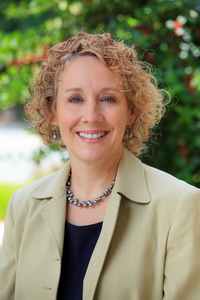
Leisha DeHart-Davis
Professor, Government
Dr. Leisha DeHart-Davis’ project will continue building the Local Government Workplaces Project. This initiative taps an international network of public organizational behavior scholars to conduct organizational research (particularly employee surveys) for North Carolina cities and counties. Participating cities and counties receive critical information on employees’ perspectives on a range of workplace issues, while participating academics receive on-the-ground data for pragmatic theory building and testing. Participating local governments serve as partners in the research, informing survey instrument development and interview protocols, providing feedback on study implementation, and interpreting research results alongside study investigators.
The Town of Cary is the pilot project for this endeavor while three other cities or counties are expected to participate this year. Current investigation topics include organizational silence (when employees do not speak up), organizational capital (high collaboration and good will among employees), and task significance and mission valence (when employees believe the work is important).
For current information on Leisha DeHart-Davis, visit her faculty page.
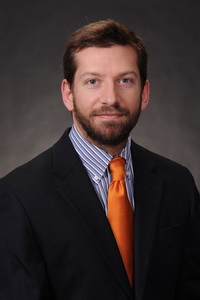
Kimon Divaris
Professor, Pediatric Dentistry
Dr. Kimon Divaris is an oral and genetic epidemiologist and board-certified pediatric dentist. His expertise and current research program cover a wide range of proximal and distal oral health determinants, with the goal of improving young children’s oral health and reducing associated health disparities. His project will explore avenues to increase the translation rate of oral health genomics information to the public, particularly to groups that are traditionally under-represented in this type of research. In partnership with parents, healthcare providers, community health workers and preschool teachers, Divaris is conducting qualitative work to better understand the standpoint, readiness, receipt, appreciation and potential use of genomics to bring about meaningful improvements in North Carolina’s children’s oral health.
For current information on Kimon Divaris, visit his faculty page.
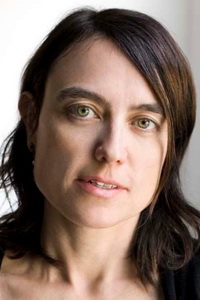
Julia Haslett
Assistant Professor, Communication
As a documentary filmmaker, Julia Haslett creates projects that respond to pressing social issues that impact underserved communities. Her films have focused on healthcare inequities in the U.S., cross-cultural medicine, climate change in China, and the French social philosopher and activist Simone Weil. Haslett’s films have screened around the world at film festivals, theaters and universities, on television, online and in numerous community settings. Haslett’s project focuses on creating a socially-engaged documentary project that explores family narratives of African-Americans living in North Carolina, specifically those that pertain to the transgenerational transmission of trauma dating back to slavery.
For current information on Julia Haslett, visit her faculty page.
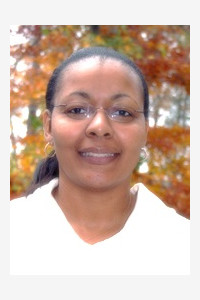
Coretta Jenerette
Former Associate Professor, Nursing
Dr. Jenerette is an academic nurse scientist committed to improving the health outcomes of people living with and managing sickle cell disease (SCD), a painful, inherited hemoglobin disorder that causes less oxygen to reach vital organs and other parts of the body. Because many individuals in the sickle cell community seek support and information via online communities, Jenerette is working with community partners in Durham and Wake counties to develop and test a web-based virtual training tool to help individuals living with SCD better communicate with their health-care providers. The goal is for patients to achieve better health-care outcomes, including relief from pain and symptoms.
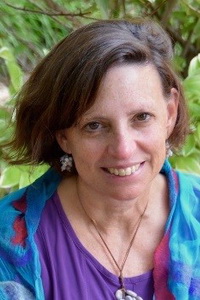
Alexandra Lightfoot
Associate Professor, Public Health
Dr. Alexandra Lightfoot uses a community-based participatory research (CBPR) approach to address health disparities with communities across North Carolina. She works closely with community partners to engage youth and their adult supporters in improving adolescent sexual health and reducing STI/HIV risk. She also partners with interdisciplinary researchers and communities to address gaps in cancer treatment and outcomes between African-American and white cancer patients, and implicit bias among health care providers towards Latino/a adolescents. As a Thorp Faculty Engaged Scholar, Lightfoot hopes to bring together her prior work in education with her current work in public health. Her project focuses on gaining an understanding of the longitudinal impact of an anti-racism program that she co-created using participatory photography. This work helps adolescents explore racial identity and pre-service teachers prepare for racial diversity in classrooms. Her goal is to spark ideas and collaborations for future adolescent-focused research addressing racial inequities at the intersection of health and education.
For current information on Alexandra Lightfoot, visit her faculty page.
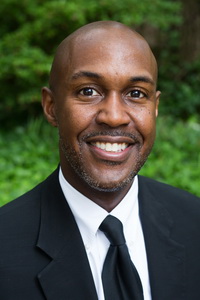
Enrique Neblett Jr.
Former Professor, Psychology and Neuroscience
Dr. Enrique Neblett’s research examines the link between racism and health among African-American adolescents and young adults. He is particularly interested in the role of racial identity, racial socialization and Africentric worldview as cultural protective factors that mitigate the impact of racism on mental and physical health. Neblett’s project employs photovoice, focus groups and in-depth interviews to examine issues of racial equity and mental health care disparities for African-American children, youth and families in Southeast Raleigh, North Carolina. He is also interested in the use of mobile technology (e.g., smartphones) to develop interventions for black youth that may assist in negotiating the negative mental and physical health consequences of individual, institutional, cultural and structural racism in the community.

Dana Thompson Dorsey
Former Assistant Professor, Education
Current Associate Professor at the Center for Urban Education at the University of Pittsburgh
Dr. Dana Thompson Dorsey is an education researcher interested in law and policy issues in education. Her research focuses on critically examining education laws, policies and practices, and their influence or potential impact on K-12 educational equity, access and opportunity for students of color and other marginalized student groups. Working in partnership with rural communities in eastern North Carolina, Thompson Dorsey hopes to gain a better understanding of how racial segregation contributes to students’ racial and rural identity development. Her research will be used to create more culturally enriching educational and social experiences for students that will positively shape their identity, educational outcomes and educational aspirations.
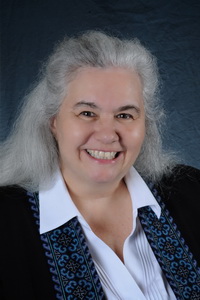
Rachel Willis
Professor, American Studies
Professor Rachel Willis is a labor economist focusing on access to work in the global economy. Her research on global freight transportation planning for climate change in port cities is a result of fellowships at the Institute for Emerging Issues, the Institute for the Arts and Humanities, and the Global Research Institute. Sea-level rise, drought, rising global temperatures and increased storm severity threaten port communities, influence migration, alter global foodsheds and impact future access to work through complex water connections related to infrastructure. The critical need for planning and action to meet the challenges of building resilient communities at local and global levels is central to her Water Over the Bridge project. Willis’ previous engaged scholarship projects on work access with respect to child care, education, transportation and disability have resulted in long-term university/community collaborations across North Carolina.
For current information on Rachel Willis, visit her faculty page.
